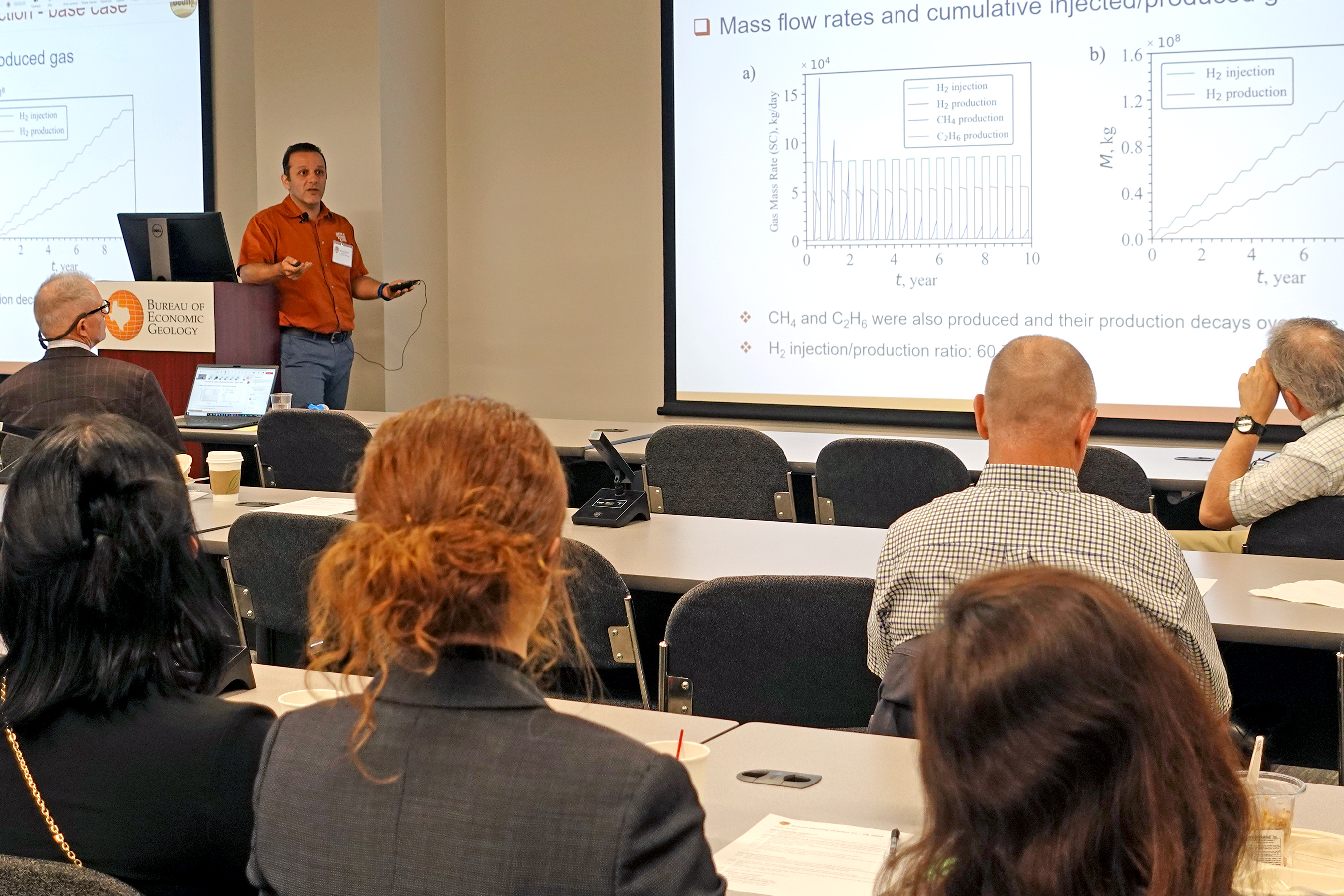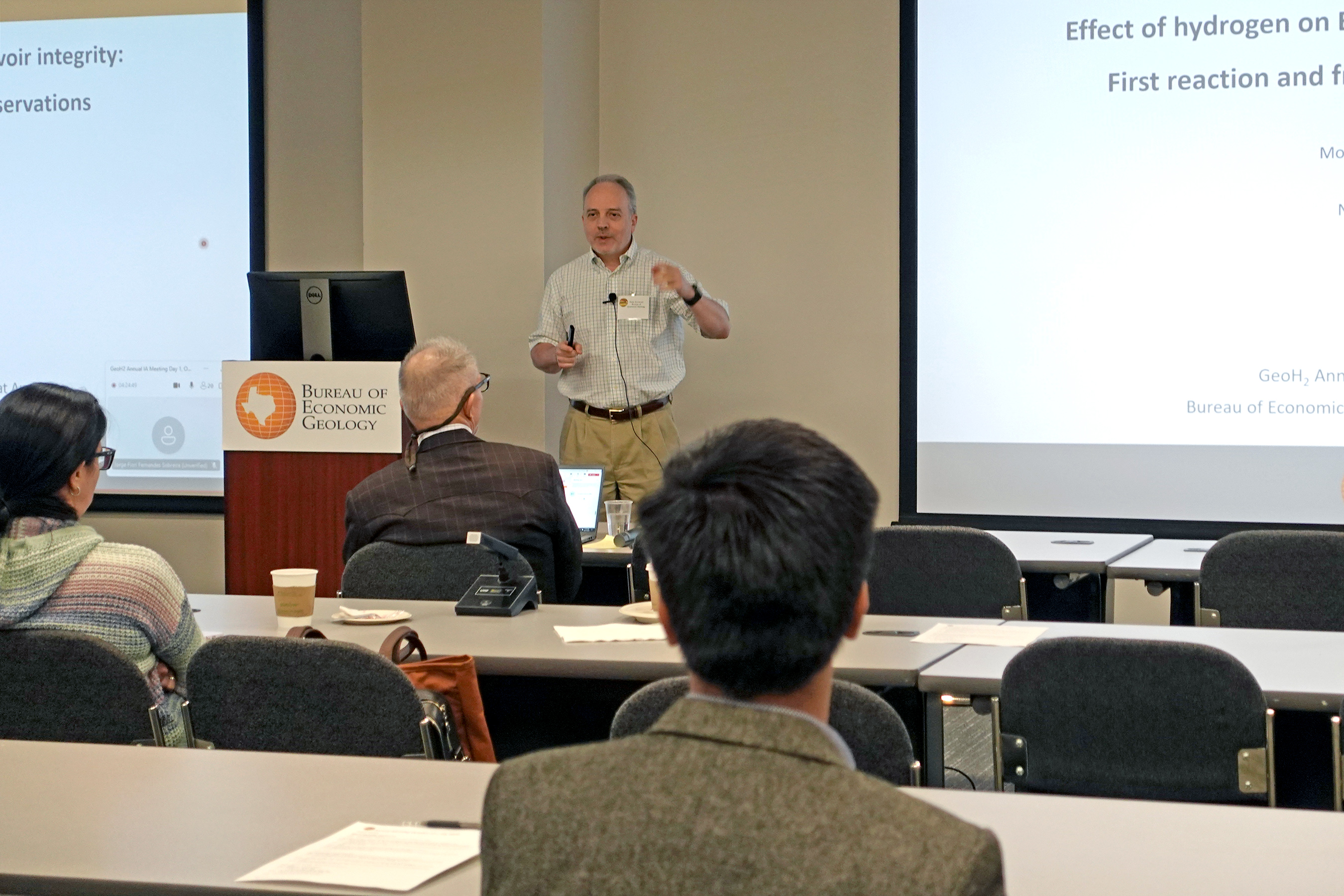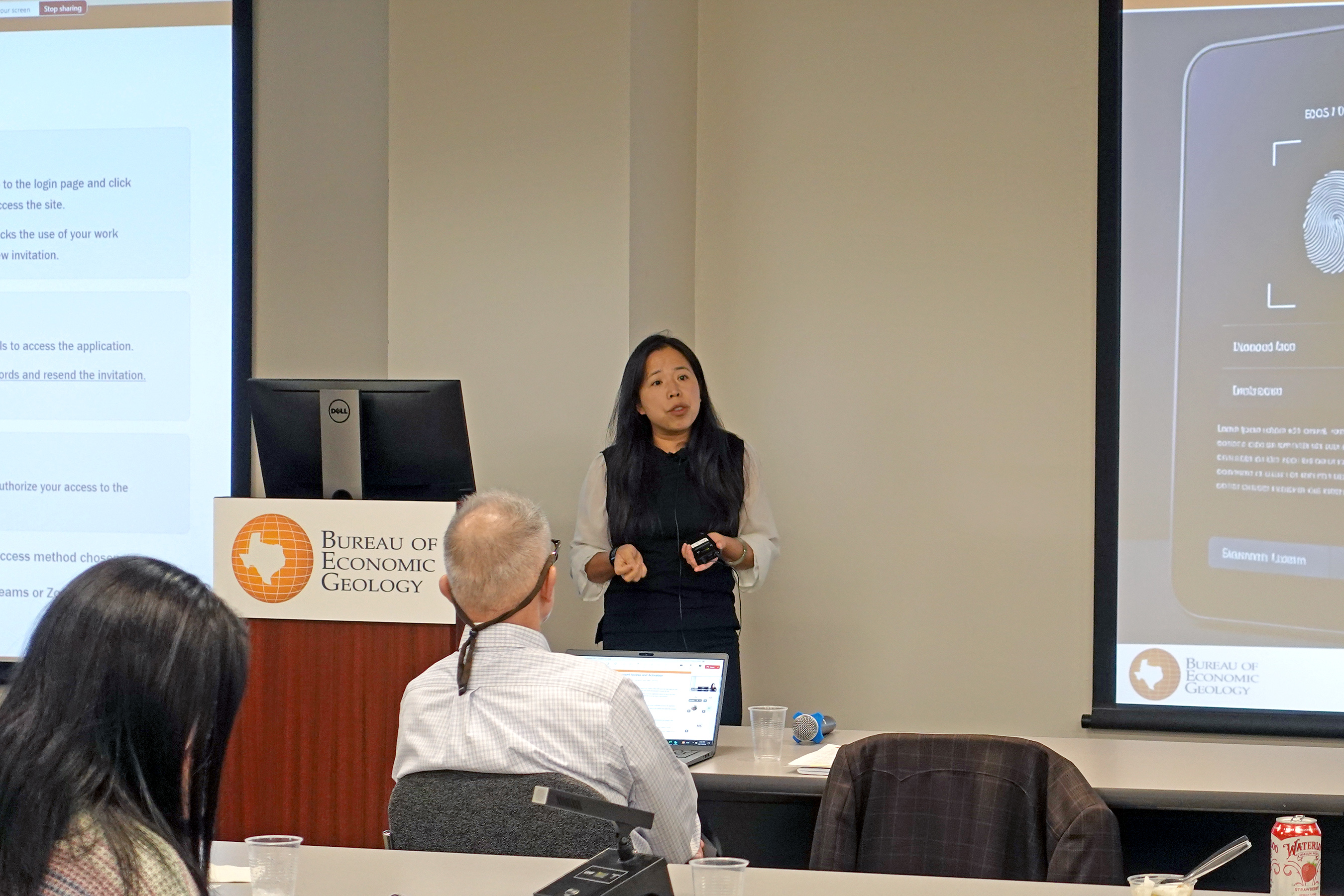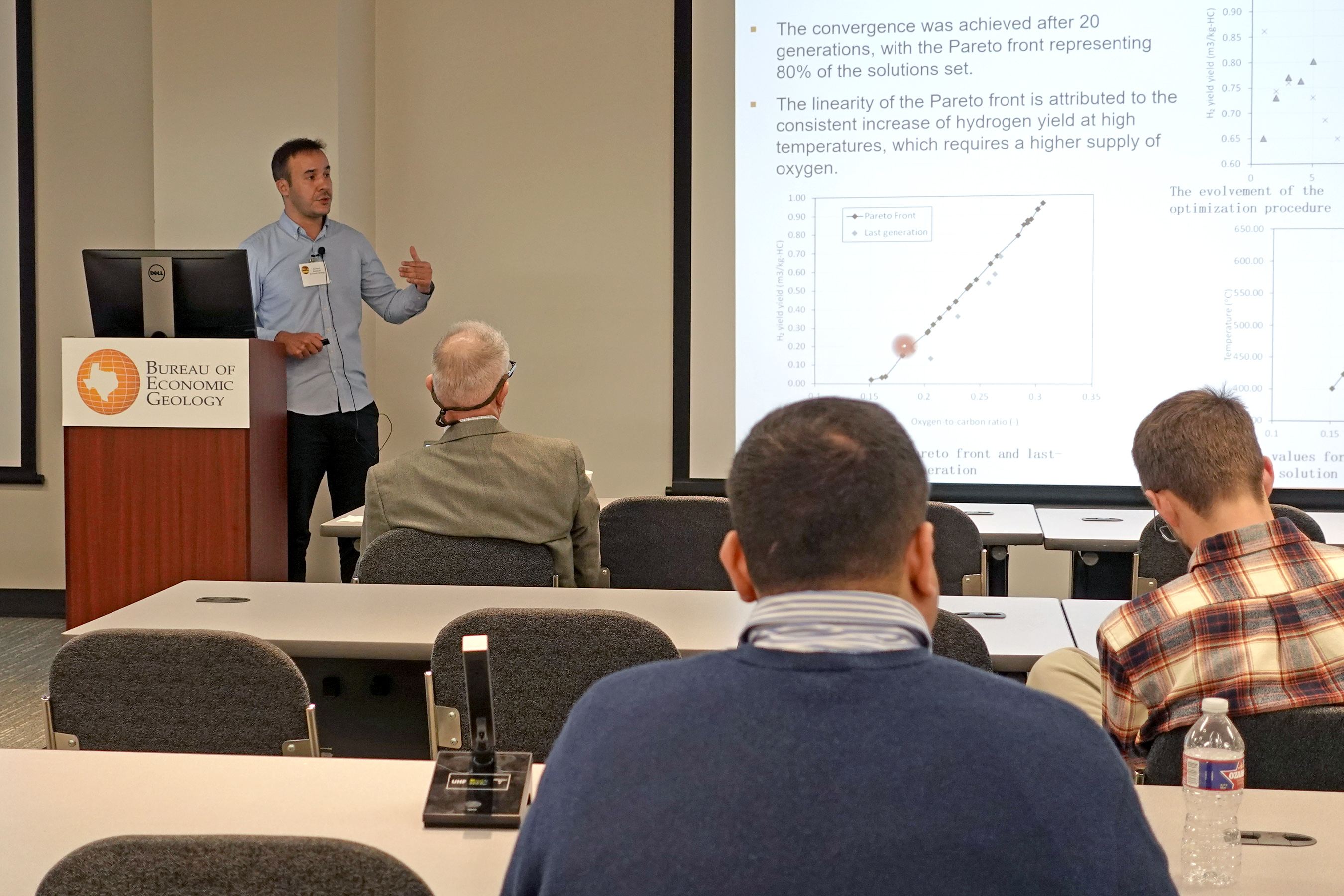GeoH2 Annual Meeting Furthers Research to Develop a Hydrogen Economy
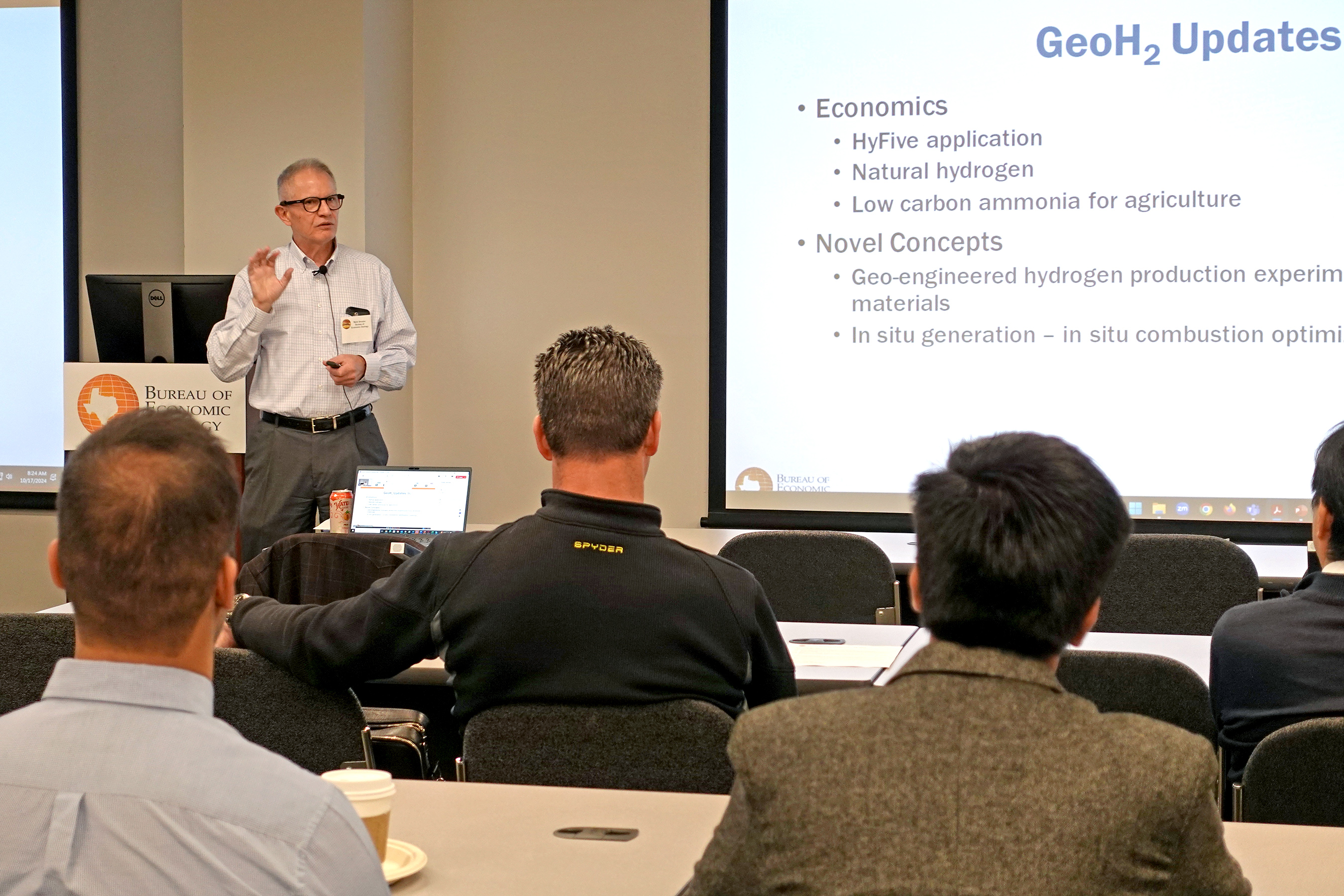
The Bureau of Economic Geology’s GeoH2 consortium is the first and largest U.S. academic group dedicated to research on subsurface hydrogen storage, hydrogen as a low-carbon energy resource, engineering aspects of hydrogen production and storage, and hydrogen techno-economics. The consortium recently convened its researchers and over 80 partners at the Bureau and online for a productive and very successful two-day Annual Meeting. Representatives from national and international energy companies, government research labs, environmental non-profit organizations, and academic institutions excitedly engaged to learn about cutting-edge hydrogen research.
GeoH2 and guest researchers conducted presentations and led discussions related to capacity estimates for cavern and porous reservoir storage of hydrogen in the U.S. and abroad, novel technologies for geophysical monitoring of hydrogen migration in the subsurface, in-situ generation of hydrogen from ultramafic rocks and organic matter, leakage and geomechanical behavior of reservoir and caprock for hydrogen storage, and the development of tools for economic and capacity calculations. Additionally, attendees viewed active experiments during a laboratory tour that included stops at the Bureau’s microfluids and hydrogen gas absorption labs.
GeoH2 builds on a 100-year history of research excellence in energy geoscience, water and mineral resource assessment, carbon storage, and subsurface engineering at the Bureau of Economic Geology at The University of Texas at Austin. For more information about GeoH2, or to participate in the research consortium, please contact Dr. Mark Shuster, Principal Investigator.
